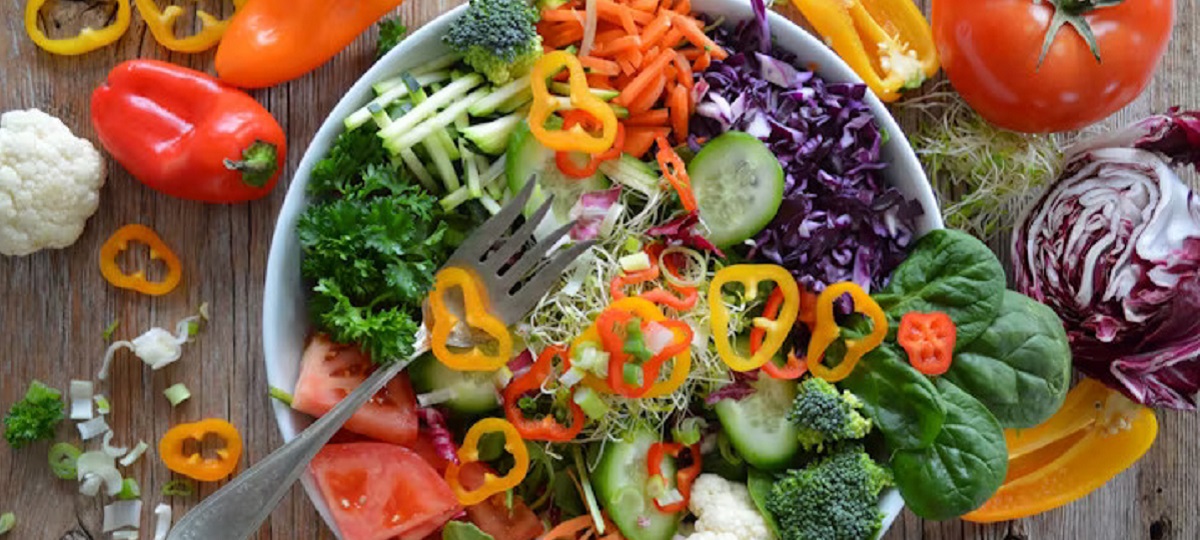Eating a salad is often associated with health and vitality, but for some, it can lead to unexpected discomfort in the form of stomach cramps and diarrhea. While salads are generally considered a nutritious choice, experiencing digestive issues after consuming one can be distressing and disruptive.
Understanding the Causes
To understand why you might get stomach cramps and diarrhea after eating salad, you need to consider a few possible reasons. Here’s a look at some common causes:
- Food Sensitivities or Allergies: Some individuals may have sensitivities or allergies to certain ingredients commonly found in salads, such as gluten, dairy, nuts, or specific vegetables like onions or tomatoes. Consuming these trigger foods can lead to gastrointestinal symptoms, including cramping and diarrhea.
- Contaminated Produce: Salad ingredients, particularly raw vegetables, can harbor harmful bacteria such as E. coli or Salmonella if not properly washed or handled. Consuming contaminated produce can result in food poisoning, characterized by symptoms like stomach cramps, diarrhea, nausea, and vomiting.
- Excessive Fiber Intake: Even while fiber is necessary for healthy digestion, eating too much of it might upset your stomach, particularly if your body isn’t used to eating a lot of fiber-rich meals. Some individuals may experience bloating, gas, stomach cramps, and diarrhea after consuming a large amount of fiber-rich foods like salads.
- Dressing Ingredients: Salad dressings often contain ingredients that some people may be sensitive to, such as vinegar, citrus, or spicy elements. Additionally, commercial dressings may contain additives or preservatives that can irritate the digestive system in sensitive individuals.
- Lactose Intolerance: Many salads contain dairy-based ingredients like cheese or creamy dressings. Individuals who are lactose intolerant may experience stomach cramps, bloating, and diarrhea after consuming dairy products.
Remedies for Stomach Cramps and Diarrhea
If you have stomach cramps and diarrhea, there are several things you can try to help relieve the symptoms and feel better:
- Hydration: Diarrhea can lead to dehydration, so it’s essential to replenish lost fluids by drinking plenty of water or electrolyte-rich beverages like coconut water or sports drinks.
- BRAT Diet: The BRAT diet (bananas, rice, applesauce, and toast) can help soothe the digestive system and provide easily digestible nutrients. These bland foods can help alleviate diarrhea and stomach discomfort.
- Probiotics: Probiotic supplements or fermented foods like yogurt, kefir, or sauerkraut can promote healthy gut bacteria and aid in digestion. They may help restore balance to the gut microbiome after a bout of diarrhea.
- Avoid Trigger Foods: Recognize and stay away from foods that make your symptoms worse. Keep a food diary to track your meals and symptoms, helping you pinpoint potential triggers.
- Over-the-Counter Medications: Antidiarrheal medications like loperamide can help reduce diarrhea symptoms. Before taking any drug, you should, however, speak with a healthcare provider, particularly if you have any underlying medical issues.
Prevention Strategies
To stop stomach cramps and diarrhea after eating, it’s important to keep clean, eat carefully, and know what foods your body can’t handle. Here are some simple tips to avoid these uncomfortable symptoms:
- Wash Produce Thoroughly: Properly wash and rinse all salad ingredients, including leafy greens, vegetables, and fruits, to remove dirt, pesticides, and harmful bacteria.
- Safe Food Handling: Practice good food hygiene by washing your hands before and after handling food, using separate cutting boards for raw meats and produce, and storing perishable items in the refrigerator.
- Choose Dressings Wisely: Opt for homemade dressings or read labels carefully to avoid dressings with potential trigger ingredients. Alternatively, try using olive oil and vinegar or lemon juice as a simple and gentle dressing option.
- Gradually Increase Fiber Intake: Gradually increase your fiber intake if you’re not accustomed to a high-fiber diet, allowing your digestive system time to adjust. Incorporate fiber-rich foods like fruits, vegetables, whole grains, and legumes into your meals gradually.
- Consider Food Sensitivity Testing: If you suspect that certain foods are causing your symptoms, consider consulting with a healthcare provider or a registered dietitian for food sensitivity testing. Identifying specific triggers can help you tailor your diet to avoid discomfort.
Conclusion
Stomach cramps and diarrhea after eating salad can be unpleasant and disruptive, but understanding the potential causes and implementing effective remedies and prevention strategies can help alleviate symptoms and promote digestive health. By identifying trigger foods, practicing safe food handling, and making mindful choices about salad ingredients and dressings, you can enjoy the benefits of a nutritious salad without experiencing gastrointestinal discomfort. If symptoms persist or worsen, consult with a healthcare professional to rule out underlying conditions and receive personalized guidance for managing your digestive health.
